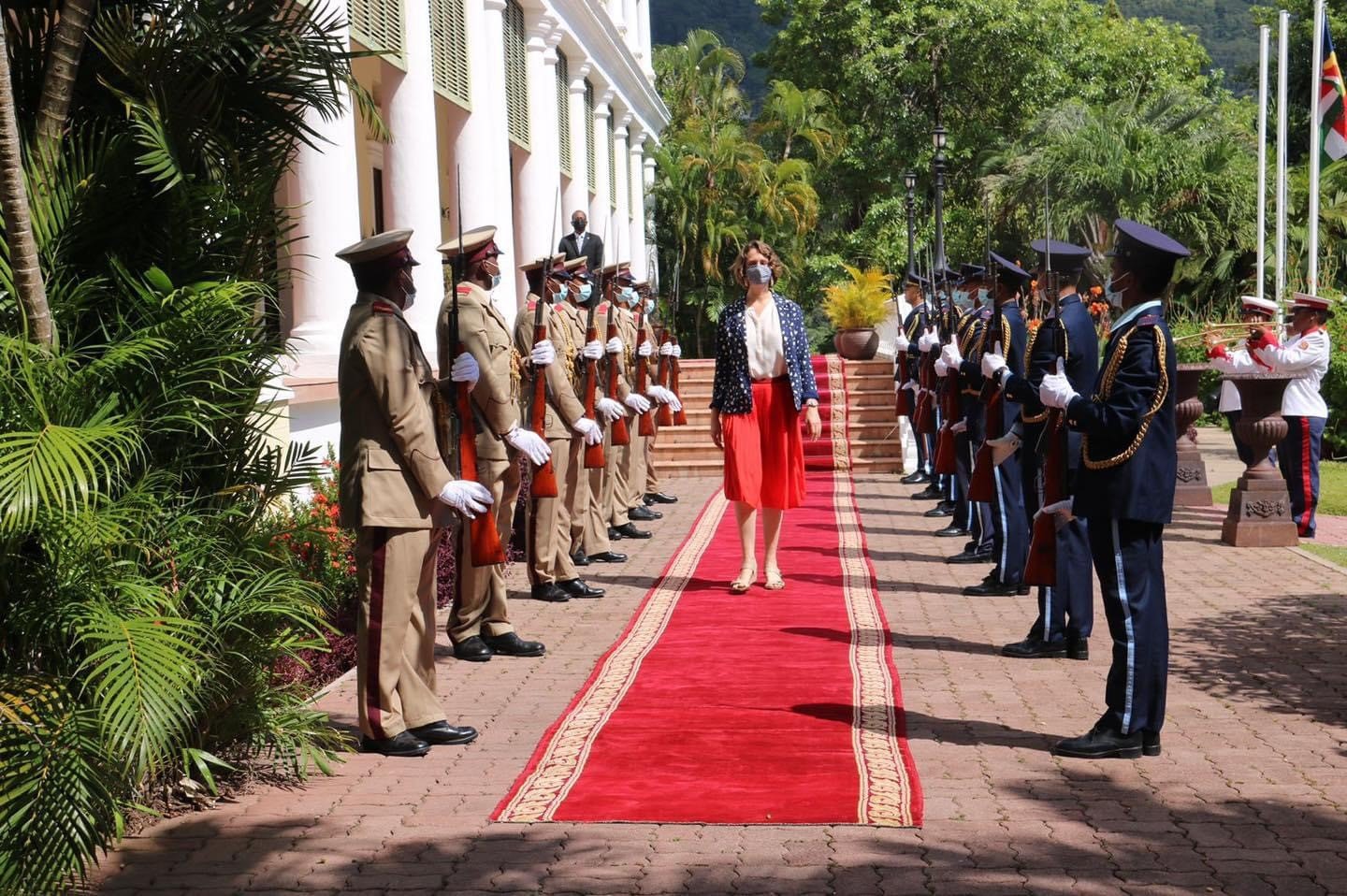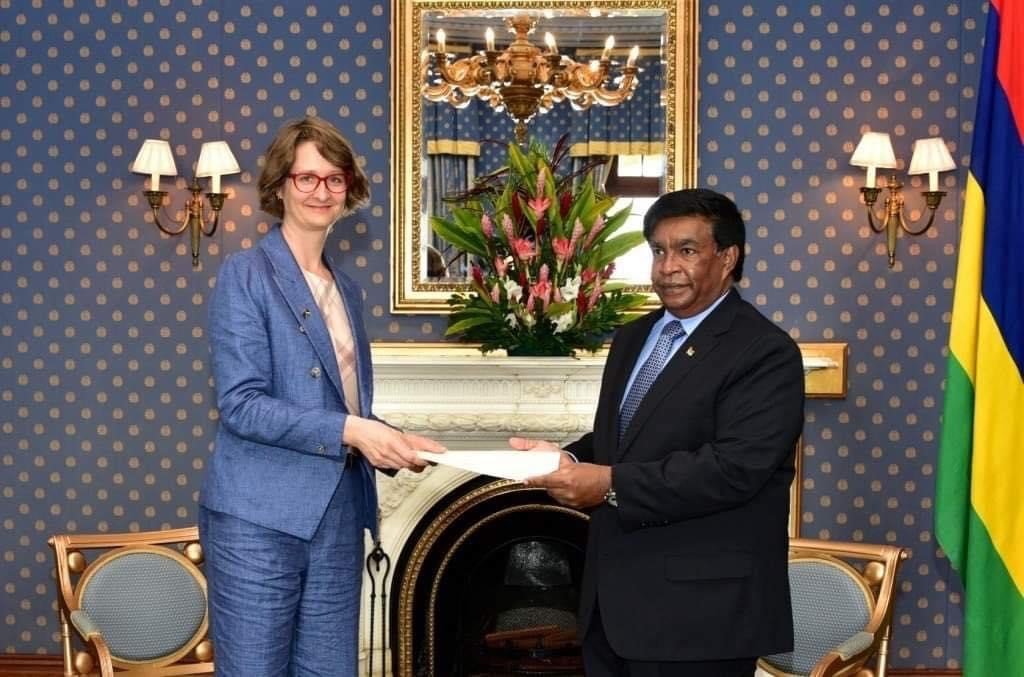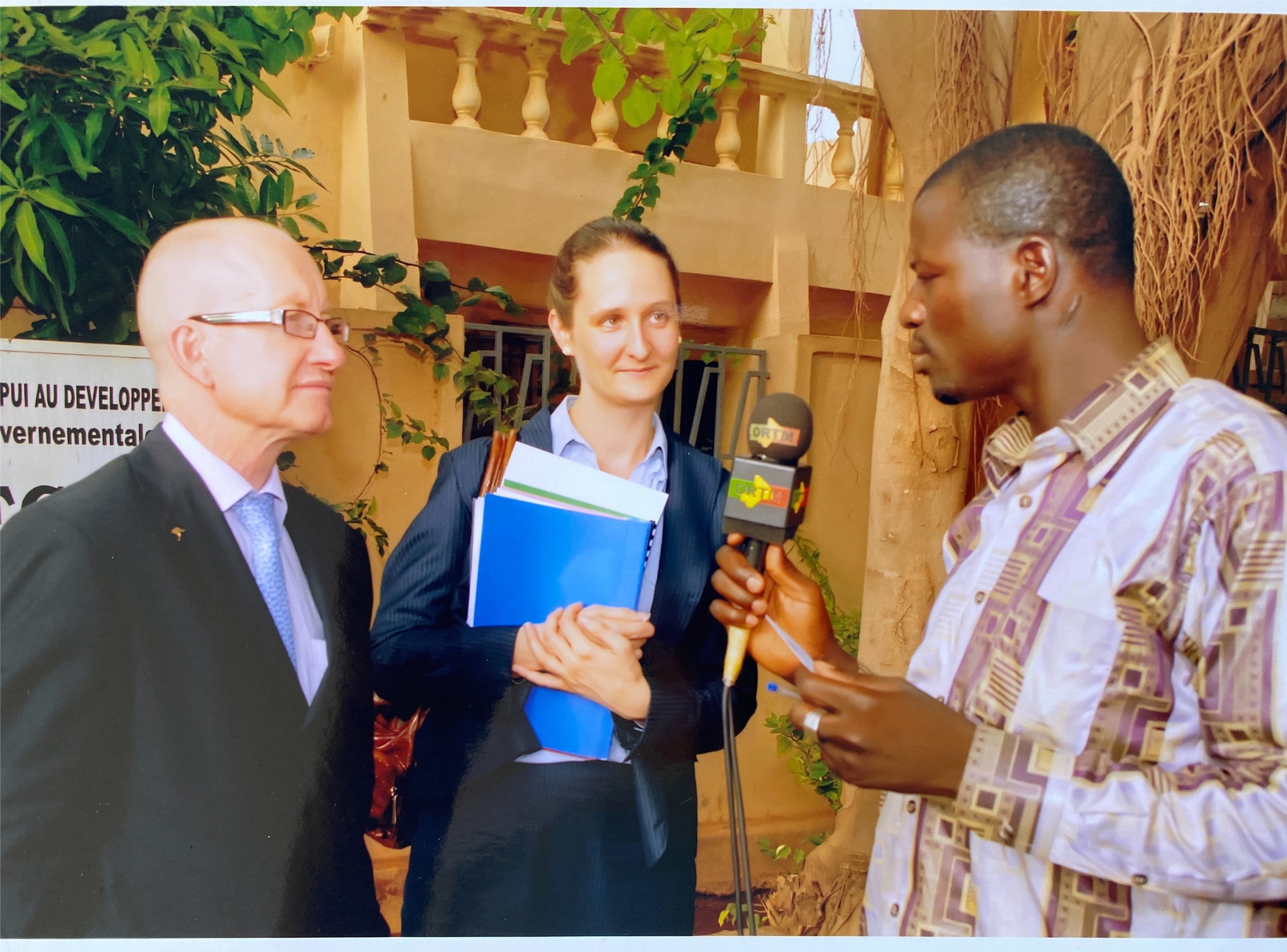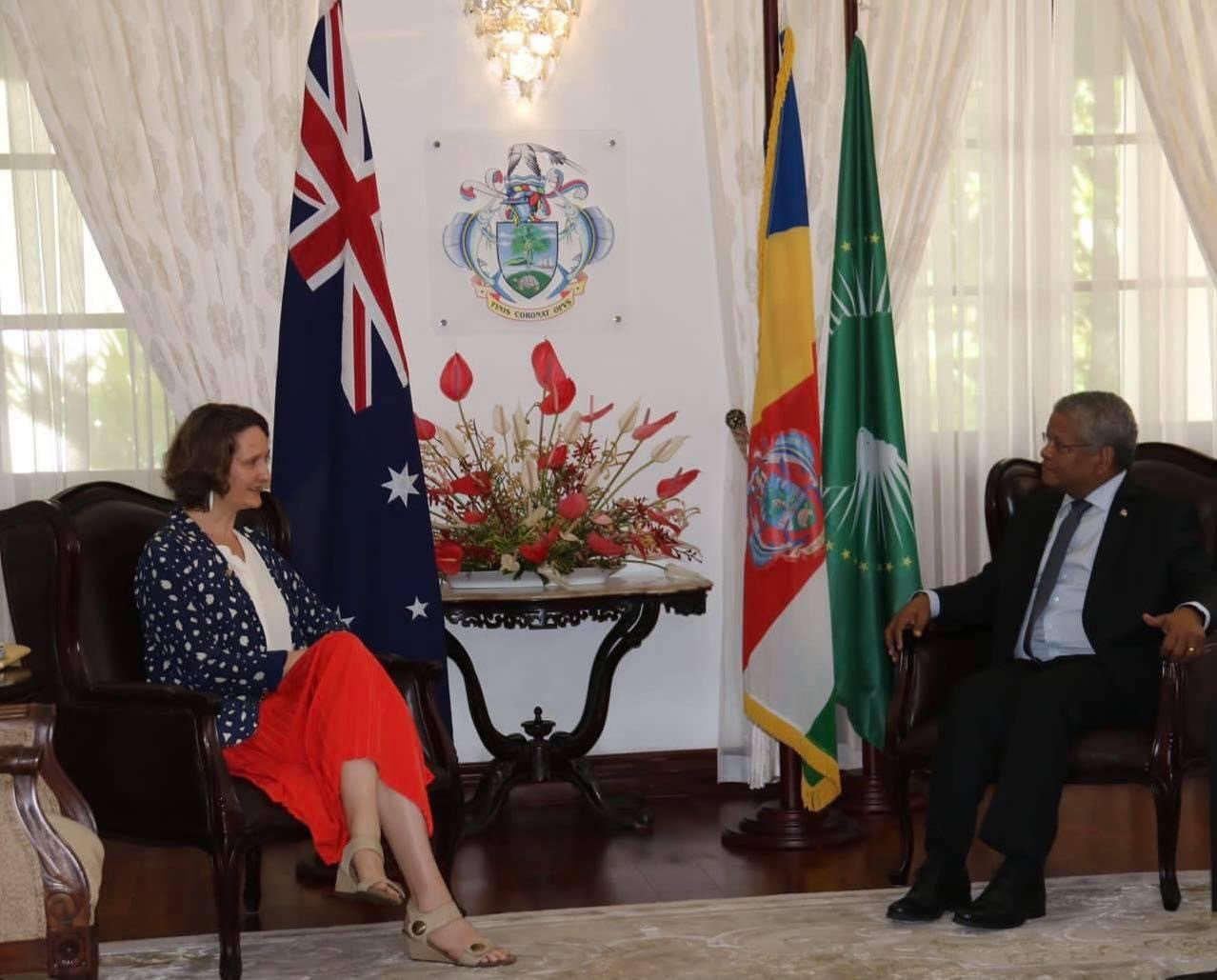Inspiring Inclusion at Home and Away
Originally from Kalgoorlie in Western Australia, College alumna Dr Kate O’Shaughnessy (1994 – 1997) holds a Bachelor of Arts (Honours) and PhD in Indonesian history from the University of Western Australia. Her work on gender in Indonesia during the Suharto era – Gender, State and Social Power in Contemporary Indonesia – was published by Routledge as part of its Women in Asia Series.
From 2007-2022, Kate worked at the Department of Foreign Affairs and Trade in Canberra and overseas. Her public sector experience spans providing policy advice to government on Australia's interests in the Indian Ocean, supporting the development of the Australian aid budget and intelligence analysis.
During her diplomatic career, she served in Ghana and was deployed to Lebanon, France, and Nigeria. From 2020 to 2022, she was Australia's High Commissioner to Mauritius and Seychelles and Ambassador to Madagascar and Comoros, advocating Australia's Indo-Pacific vision to stakeholders across the western Indian Ocean.
Kate is the Research Director at the Perth USAsia Centre, a foreign policy think tank focused on Indo-Pacific strategy, based at the University of Western Australia.
We sat down with Kate to discuss how this year's International Women's Day theme of Inspire Inclusion resonates with her.
Who did you look to for inspiration when starting your career?
The honest answer to that is nobody, and that cuts right to the heart of the challenge for young women starting their careers in many fields. I grew up in Kalgoorlie – a mining town – in the 1980s and 1990s. I didn't know anybody who had ever worked in foreign affairs, Canberra, or even government. So that made starting my career in the Department of Foreign Affairs and Trade quite an overwhelming, discombobulating experience, although I didn't realise it at the time. That's given me an acute sense (in hindsight) of the importance of diverse role models to give young people the confidence to imagine themselves in a particular career.
What were some of the challenges that you faced in your career?
I think there are two types of challenges in anyone's career –doing difficult things and navigating difficult feelings.
In the Department of Foreign Affairs and Trade, many elements of the work are just objectively difficult because they are in tough environments or about tough subjects. One of my early tasks, when I moved to Canberra, was to translate breaking Indonesian news of a plane crash in Yogyakarta in 2007, in which a number of Australian embassy officials tragically died. Indonesian media outlets were reporting the names of these officials before their families had been informed, and I had to pass this information on to consular officials working with the families. In 2016-2017 I was part of a crisis team working in the Sahel (Niger, Mali, Burkina Faso) in response to the kidnapping of an elderly Australian citizen – he remained in captivity for many years, and working on that case was distressing, for many people, because there wasn’t a positive outcome for a long time. So that sort of work is just hard – for anyone.
But there's also the internal challenge I faced at work, shared by many women – self-doubt. For many years, I doubted my capabilities and tended to keep quiet in meetings, assuming others who spoke up must surely know more than me. It took me a long time (and several supportive supervisors and managers) to realise that loudest doesn't necessarily equal smartest. Learning to speak up confidently and quieten my unhelpful inner critic has taken a lot of practice.
What are you most proud of when you reflect on your career?
What I am most proud of in my career is not any discrete achievement or project but rather my record of building and leading respectful, inclusive teams with strong morale and a shared sense of purpose, especially in my overseas assignments. If I think about my first diplomatic posting in Ghana (2009-2012), I learned so much from my Ghanaian colleagues – I still think of them often with genuine respect and affection, and I know they feel the same about me. We absolutely achieved some important things together as a team – delivering Australian aid projects across West Africa, campaigning for Australia’s non-permanent seat on the UN Security Council (2013-2015) and providing consular assistance to Australian citizens in nine countries. I recognise those achievements, but the thing that sticks with me most – and that I am most proud of – is how I worked with and in a team of people to do it.
Why do you think there is a continuing need worldwide for more progressive mindsets and inclusive behaviours to be forged?
In the past, we needed to talk about inclusive behaviour because there wasn't much of it. These days, our gains are being threatened by political polarization and siloed debates (fuelled by social media algorithms and mis- and disinformation). We all need to take a breath and recommit to two simple concepts – everyone deserves respect, and everyone should be able to bring their whole selves to work. If you can do that, everything else flows from there.
How do you inspire inclusion in your workplace?
This is a theme of my career, and I do hope that I lead by example in being honest about what I have to learn and making space for those who know more to share their expertise. There's always more to learn – always. For example, my colleague at the Perth USAsia Centre, Sarah Leary, the Centre's inaugural First Nations Foreign Policy Fellow, is teaching me so much right now about First Nations perspectives on Australia's international engagement and the importance of putting aside my preconceptions. Inclusion happens when everyone acknowledges they have something to learn from others.
How would you inspire more women to take up leadership positions?
I would suggest two things. First – for women who want to take up formal leadership positions in an organisation, they can and should 'do leadership' in an authentic way. It doesn't have to look the same as what we might consider 'traditional' leadership models (top-down, authoritative). It’s fine to be a leader and cry at work (I have), it’s fine to admit that you are wrong, and it's generous to acknowledge publicly when your decisions have been based on the work and advice of others. And then second, I think it’s useful to think about leadership at every level. Both team members and team leaders have a role to play in modelling kind, respectful behaviour – that helps create an environment where people who later want to take up formal leadership roles can do so.
As I age, I think about leadership the way a Ghanaian Chief once described it – like an egg; hold it too tight you break it, too loose and it falls and breaks as well. So, you must strive for the right amount of control and letting go.






